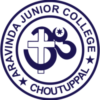What is NIOS?
The National Institute of Open Schooling (NIOS) is an “Open School” system designed to meet the educational needs of diverse learners up to the pre-degree level. Initially launched as a project by the Central Board of Secondary Education (CBSE) in 1979, it was established to provide flexible learning opportunities. In 1986, the National Policy on Education called for expanding the Open School System to support secondary-level education across the country. As a result, the Ministry of Education (MOE) established the National Open School (NOS) in November 1989, incorporating the CBSE’s pilot project into this new entity.
In 2002, the institution was renamed the National Institute of Open Schooling (NIOS) with a mission to offer accessible, continuing education for students through the Open Learning system. NIOS enables learners who have missed out on formal schooling to pursue their studies at their own pace, contributing to the universalization of education, promoting equity and justice in society, and fostering the evolution of a learning society.
What Does NIOS Do?
NIOS offers a range of courses and programs through open and distance learning (ODL) mode, providing flexible education to learners. These programs include:
- Open Basic Education (OBE): For learners aged 14+, including adolescents and adults, at levels equivalent to classes III, V, and VIII of formal schooling.
- Secondary Education Course: Equivalent to class 10.
- Senior Secondary Education Course: Equivalent to class 12.
- Vocational Education Programs: Offering practical training in various sectors.
- Life Enrichment Programs: For personal and skill development.
NIOS operates in collaboration with about 853 partner agencies for the OBE program, providing academic resources and support to ensure quality education for children, school dropouts, and non-formal education (NFE) completers.
Flexibility and Learning Strategies
At the secondary and senior secondary levels, NIOS offers flexibility in the choice of subjects, pace of learning, and credit transfer from other boards like CBSE and state open schools. Learners can appear for public exams up to nine times within five years, and the credits are accumulated until certification requirements are met. Learning methods include self-instructional materials, audio-visual programs, personal contact programs (PCP), and tutor-marked assignments (TMA). The study material is available in multiple languages, including Hindi, English, and Urdu.
The On-Demand Examination System (ODES) allows students to take exams when they feel prepared, offering more flexibility. NIOS provides a wide variety of subjects for secondary and senior secondary exams and also offers vocational subjects in combination with academic courses.
Vocational Education Programs
NIOS emphasizes vocational training, preparing students with the knowledge, skills, and entrepreneurship qualities necessary for various fields. Vocational courses are offered in areas such as agriculture, business, engineering, health, hospitality, IT, and teacher training. Practical and on-the-job training are integral parts of these programs, ensuring students gain hands-on experience.
NIOS collaborates with industries and organizations to enhance the quality of its vocational education programs, ensuring that learners are equipped with relevant skills for the job market. The curriculum framework, aligned with the National Curriculum Framework (NCF-2005), focuses on knowledge acquisition and skill development through open and distance learning.
Inclusive Education and Special Focus
NIOS pays special attention to the needs of first-generation learners, students with physical, mental, or visual challenges, and learners from disadvantaged sections of society, ensuring inclusive education for all.
How Does NIOS Function?
NIOS operates through a vast network of five departments, 23 regional centers, two sub-regional centers, two NIOS cells, and over 7,400 study centers across India and abroad. As the largest open schooling system in the world, NIOS has enrolled over 4.13 million students in the last five years, providing a flexible and accessible alternative to formal education for learners worldwide.
